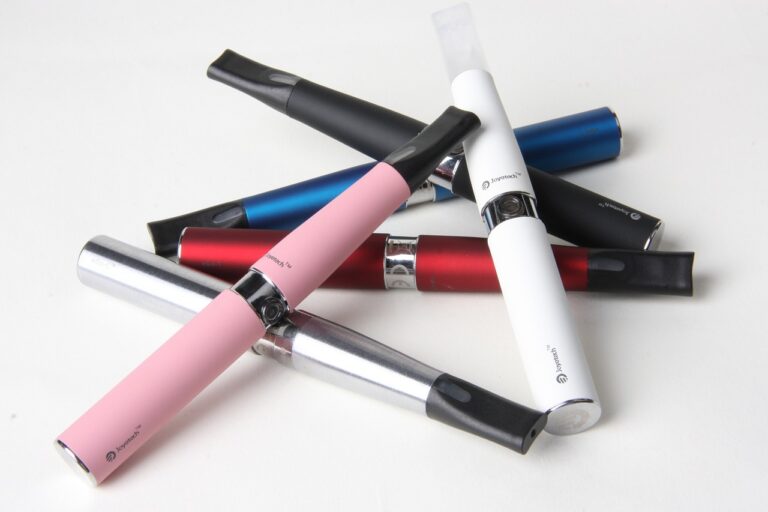The Impact of Environmental Stressors on Skin Health
allpaanel exchange, lotus365, laserbook247 id:The Impact of Environmental Stressors on Skin Health
Our skin is our body’s largest organ, serving as a protective barrier between our internal organs and the outside world. However, the skin is constantly exposed to various environmental stressors that can have a significant impact on its health and appearance. From pollutants and UV rays to temperature extremes and harsh chemicals, these stressors can wreak havoc on our skin if not properly managed. In this article, we will explore the effects of environmental stressors on skin health and provide tips on how to protect and nourish your skin.
Pollution: The Hidden Threat to Your Skin
Pollution is a major environmental stressor that can have a detrimental effect on your skin. Particulate matter, ozone, and other pollutants can penetrate the skin’s barrier, leading to inflammation, accelerated aging, and conditions such as acne and eczema. To protect your skin from pollution, consider using skincare products that contain antioxidants and anti-inflammatory ingredients, such as vitamin C, niacinamide, and green tea extract. Additionally, make sure to cleanse your skin thoroughly at the end of each day to remove pollutants and prevent them from causing damage.
UV Rays: The Silent Aggressor
Exposure to ultraviolet (UV) rays from the sun is one of the most significant environmental stressors for your skin. UV rays can cause DNA damage, collagen breakdown, and premature aging, as well as increase your risk of skin cancer. To protect your skin from UV damage, always wear sunscreen with an SPF of at least 30, seek shade during peak sun hours, and wear protective clothing such as hats and sunglasses. Remember, UV rays can penetrate clouds and glass, so it’s essential to protect your skin even on overcast days and when indoors.
Temperature Extremes: Hot and Cold Challenges
Extreme temperatures can also take a toll on your skin. Cold weather can strip your skin of its natural oils, leading to dryness and irritation, while hot weather can trigger excess oil production and sweat, potentially causing breakouts and clogged pores. To minimize the impact of temperature extremes on your skin, use a humidifier in dry indoor environments, apply a rich moisturizer in cold weather, and use lightweight, non-comedogenic products in hot weather. Hydrating facial mists can also help refresh and rehydrate your skin throughout the day.
Harsh Chemicals: Watch Out for Irritants
Many skincare products contain harsh chemicals that can damage the skin’s barrier and disrupt its natural balance. Ingredients such as sulfates, parabens, and artificial fragrances can cause irritation, redness, and allergic reactions, compromising your skin’s health over time. To protect your skin from harsh chemicals, opt for products with gentle, natural ingredients and avoid products that contain known irritants. Conduct patch tests before trying new products to ensure they are compatible with your skin, and consult a dermatologist if you experience persistent skin issues.
Stress: The Internal Enemy
While environmental stressors can have a visible impact on your skin, internal stressors such as lack of sleep, poor diet, and mental stress can also contribute to skin issues. Chronic stress can trigger inflammation, weaken the skin’s barrier, and exacerbate conditions like acne and eczema. To address internal stressors, prioritize self-care practices such as getting enough sleep, eating a balanced diet rich in antioxidants and omega-3 fatty acids, and practicing stress-reduction techniques like meditation and yoga. Taking care of your mental and emotional well-being can have a positive ripple effect on your skin’s health and appearance.
Protecting Your Skin: A Holistic Approach
In conclusion, the impact of environmental stressors on skin health is undeniable. To protect your skin from pollutants, UV rays, temperature extremes, harsh chemicals, and internal stressors, adopt a holistic approach to skincare. Use sunscreen daily, cleanse and moisturize your skin regularly, choose gentle and natural skincare products, and prioritize self-care practices that support your overall well-being. By taking proactive steps to safeguard your skin from environmental stressors, you can maintain a healthy, radiant complexion and minimize the signs of aging and damage over time.
FAQs
Q: How often should I apply sunscreen?
A: It is recommended to apply sunscreen every two hours, or more frequently if you are sweating or swimming.
Q: Can pollution cause skin cancer?
A: While pollution can contribute to skin damage and premature aging, direct exposure to UV rays from the sun is the main risk factor for skin cancer.
Q: What are some natural ingredients that are beneficial for skin health?
A: Natural ingredients like aloe vera, chamomile, and shea butter have moisturizing, anti-inflammatory, and soothing properties that can benefit the skin.
Q: Is it necessary to use a separate moisturizer for day and night?
A: Daytime moisturizers often contain sun protection and lightweight formulas, while nighttime moisturizers are typically richer and focus on repairing and replenishing the skin. Using separate products can optimize the benefits for your skin.







